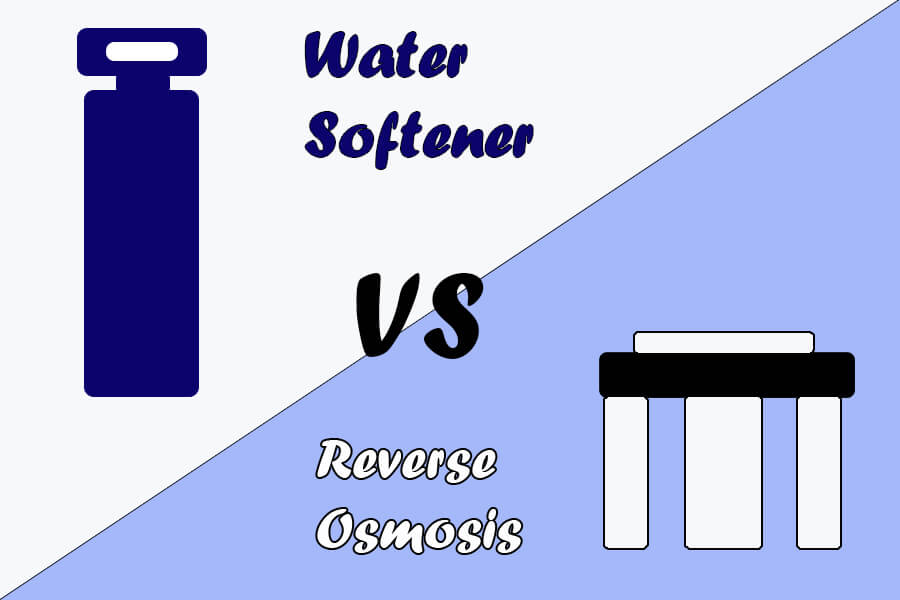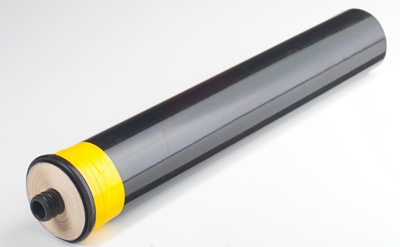
It's the beginning of a new year and many people are starting to think about getting more healthy. One of the things you may be considering, especially if you have hard water, is getting cleaner and purer water throughout your home for drinking, bathing, etc.
The problem is, there are a lot of options out there and many people do not know where to start. Two of the more popular options are reverse osmosis systems and water softeners. But, which one should you choose? Or, should you get both?
Why Get a Water Softener?
The fact is that around 85% of Americans have some form of “hard water”. This means they have varying levels of calcium, magnesium, and other minerals in the water running through their homes and businesses.
The problem with hard water is that those minerals can build up in plumbing, appliances, showers, tubs, and sinks and can greatly reduce the lifespan or cause costly repairs. Also, hard water does not interact with soap and detergent as well meaning it takes more to get your clothes and yourself clean. Some people can actually taste a very noticeable difference between hard water and soft water.
A water softener “softens” your water by removing these minerals and replacing them with sodium ions in a process called “ion-exchange”. In the ion exchange process, sodium ions are used to coat an exchange medium in the softener. The exchange medium can be natural “zeolites” or synthetic resin beads that resemble wet sand. As hard water passes through the resin in the water softener, the calcium, and magnesium trade places with sodium ions. Sodium ions are held loosely and are replaced easily by calcium and magnesium ions. During this process, “free” sodium ions are released into the water.

Why Get a Reverse Osmosis System?
First, let's cover what an RO system does. A reverse osmosis system removes sediment and chlorine from the water with a pre-filter before it forces water through a semipermeable membrane to remove dissolved solids. After water exits the RO membrane, it passes through a postfilter to polish the drinking water before it enters a dedicated faucet.
In layman’s terms, the water is filtered 3 separate times to leave you with the cleanest drinking water possible. Here are the things an RO system will remove:
- Fluoride? Yes.
- Salt? Yes.
- Sediment? Yes.
- Chlorine? Yes.
- Arsenic? Yes.
- VOCs? Yes.
- Herbicides and pesticides? Yes.
- Many other contaminants? Yes. The contaminants listed are some of the most popular ones treated with an RO system, but the system also removes a slew of other contaminants.
- Bacteria and Viruses? No. If your water comes from a city treatment plant, then it should already be microbiologically safe. To remove living organisms and viruses, we recommend UV disinfection.

Should I get both a water softener and an RO system?
Combining a water softener and an RO system has 3 main benefits to home and business owners.
- The water softener will extend the life of the filters in the RO system. The filters in an RO system are designed to remove calcium and magnesium but they are typically small and need to be replaced after a certain amount of time. Sending pre-treated water from a water softener to the RO system will improve the lifespan of the filters and save you money.
- An RO system will not treat the water going to your appliances and other faucets. This means that without a water softener, these appliances will still have hard water running through them and it will lead to build up in the plumbing and in your sinks, showers, and bathtubs.
- The cost savings of using both a water softener and an RO system cannot be understated. These two treatments can save you thousands in costly repairs and replacement of appliances. Also, the RO system will save you from buying expensive bottled water and help protect the ecosystem from disposing of plastic bottles.
Combining a water softener and an RO system has a ton of benefits. Not only does one protect the other but they also protect you, your family (or employees), and your water-using appliances.
The first step in determining what kind of water treatment your home or business needs is to get your water tested. From there you will have a better idea of how hard your water is and what you need to filter out from your drinking water. You can then research different treatment systems on sites like best-ro-system.com.
If your business is looking into a water treatment system, contact Robert B. Hill Co. We have been designing custom water treatment systems for companies since 1954.
